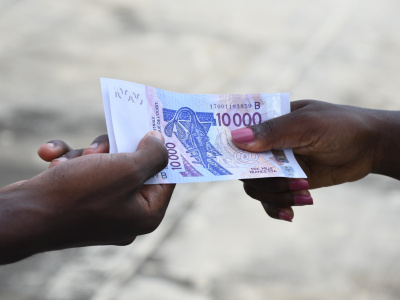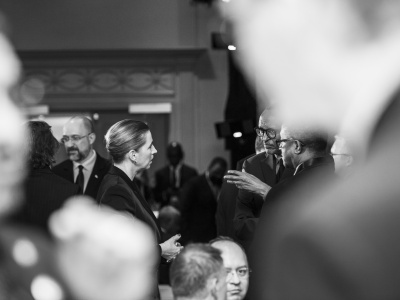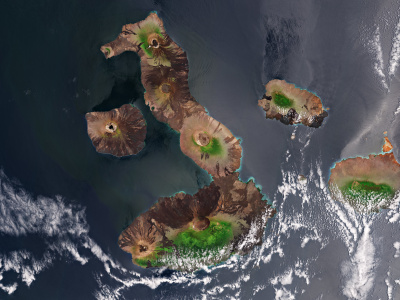
European development finance in perma-crisis
ECDPM’s San Bilal edited an e-book which features insights from external contributors on ways the EU, its member states and their (financial) institutions for development can best respond to the multiple global challenges we are facing in the context of the international and European financial architecture for sustainable development.
Preface
Our world is in deep trouble. We are experiencing what IMF Managing Director Kristalina Georgieva described as the era of shocks, and the ECB President Christine Lagarde and others referred to as an age of perma-crisis. The compound shocks and permanent crises range from climate change, the COVID-19 pandemic, and the Russian war in Ukraine to the rising prices of energy, food and fertilisers, persistent inflationary pressures, rising debt burden and tightened monetary policy. While this crisis-ridden era confronts advanced economies with multiple challenges, they have drastic consequences for many developing countries, putting in grave jeopardy the 2030 Agenda for Sustainable Development. Yet, in the words of UN Secretary-General António Guterres, “in the face of these cascading crises, we are far from powerless. There is much we can do, and many concrete steps we can take to turn things around. […] Let’s come together, starting today, with ambition, resolve and solidarity, to rescue the Sustainable Development Goals [SDGs] before it is too late.”
This is precisely what the European Union (EU) has been doing: adopting ambitious agendas and plans for action, vigorously mobilising its policies and instruments to tackle the challenges of our times at home and abroad.
A strengthened European Financial Architecture for Development (EFAD), combined with reforms of the international financial system, provides the opportunity for the EU and its Member States, their financial institutions and development agencies to pursue more strategic approaches to development finance and sustainable investment aligned to European values and principles, goals and priorities, based on a ‘policy-first’ approach. The Team Europe approach and Working Better Together process allow the EU and its Member States to better coordinate their efforts, within the EU budget and beyond, to mobilise at-scale development resources for greater impact in a more (geo-)strategic and complementary way, including in poorer, more fragile and conflict-sensitive countries. The Global Gateway strategy should allow Europe to better project itself abroad, articulating a vision for quality infrastructure development anchored in European strategic objectives, including other geo-political actors. By pursing a reform agenda, European actors can help foster a more effective and impactful European and international development finance agenda, in line with developing countries' needs, priorities and ownership.
This e-book regroups brief insights from some key actors on concrete ways the EU, its member states and their (financial) institutions for development can best respond to the challenges of our times in a more strategic, developmentally sustainable, impactful and inclusive manner, in the context of the international and European financial architecture for sustainable development.
Table of content
Chapter 1:
European development finance in the crisis-ridden era: Team Europe and the EFAD for a greener and more sustainable impact
San Bilal, Senior Executive and Associate Director, ECDPM Section II. European financial institutions for development in action
Chapter 2:
Adjustments needed in Team Europe and European financial architecture development (EFAD) efforts Bruno Wenn, Outgoing Chairperson of the Board of Directors, Association of the European Development Finance Institutions (EDFI)
Chapter 3:
Development finance: Tackling multiple crises while addressing resilience and global challenges Lionel Rapaille, Director for Lending Operations in EU Neighbouring Countries, EIB Chapter
Chapter 4:
In times of crisis, development banks move even closer together
Christian Garve and Dr. Jennifer Lenk, KfW Development Bank/European Affairs, Presidency of Joint European Financiers for International Cooperation (JEFIC)
Chapter 5:
International development financing: A triple revival
Rémy Rioux, Chief Executive Officer Agence Française de Développement (AFD), Chairman of the International Development Finance Club (IDFC), Chair of Finance in Common (FIC) executive board, representative of the Joint European Financiers for International Cooperation; Thomas Mélonio, Executive Director of Innovation, Strategy, and Research, AFD; and Jean-David Naudet, Advisor to the Executive Director of Innovation, Strategy, and Research, AFD
Chapter 6:
Building a shared European vision on the reforms of the international financial architecture for sustainable development
Elise Dufief (IDDRI), Daniele Fattibene (ETTG), Niels Keijzer (IDOS), San Bilal (ECDPM) and Frederique Dahan (ODI)
Chapter 7:
The EU’s Global Gateway and the European Financial Architecture for Development
Jeroen Kwakkenbos, Deputy Head of EU Office and Senior Aid Policy and Development Finance Advisor at Oxfam




